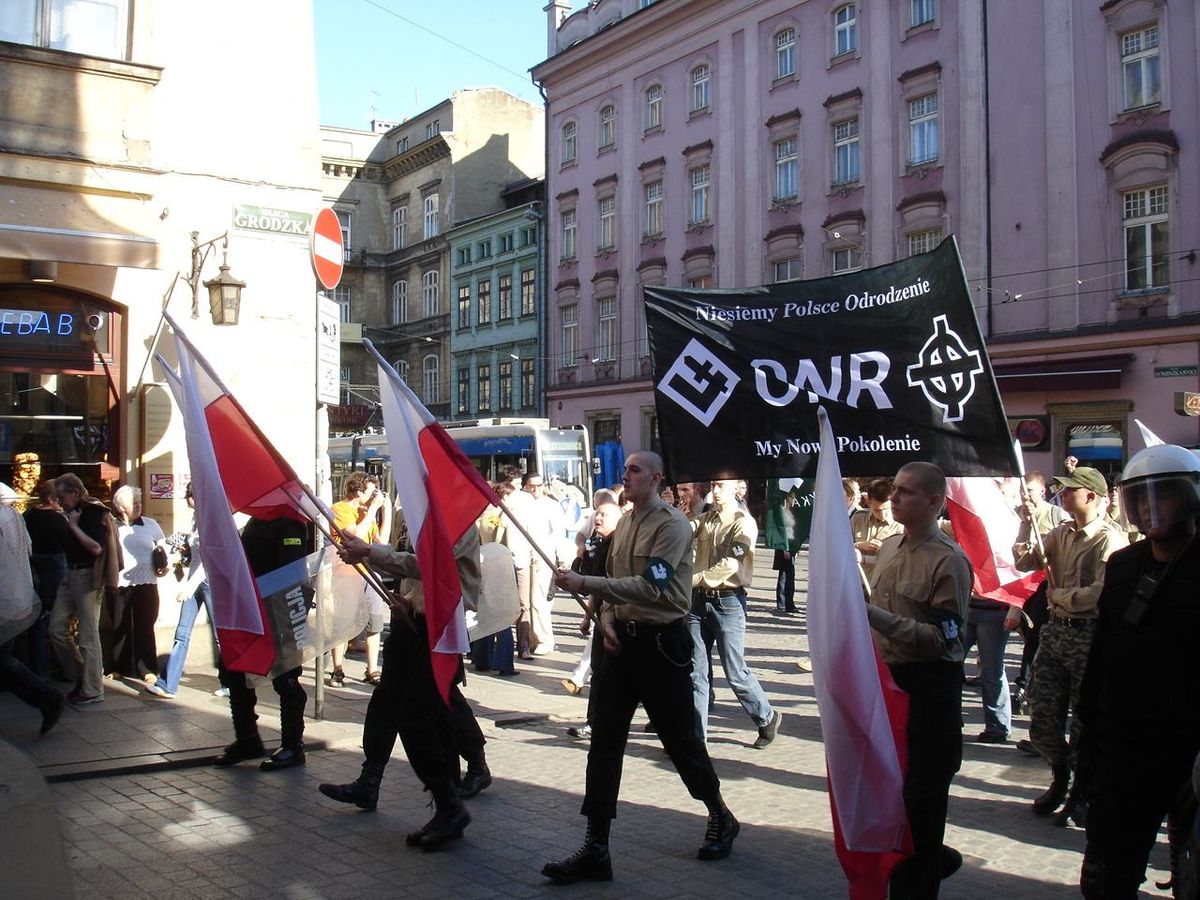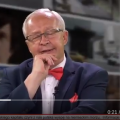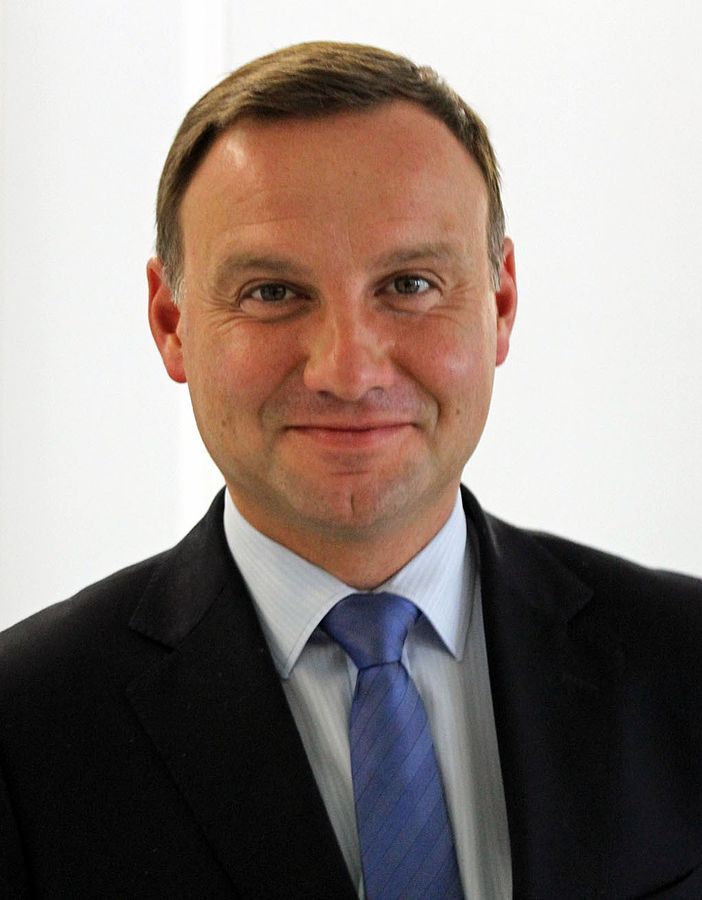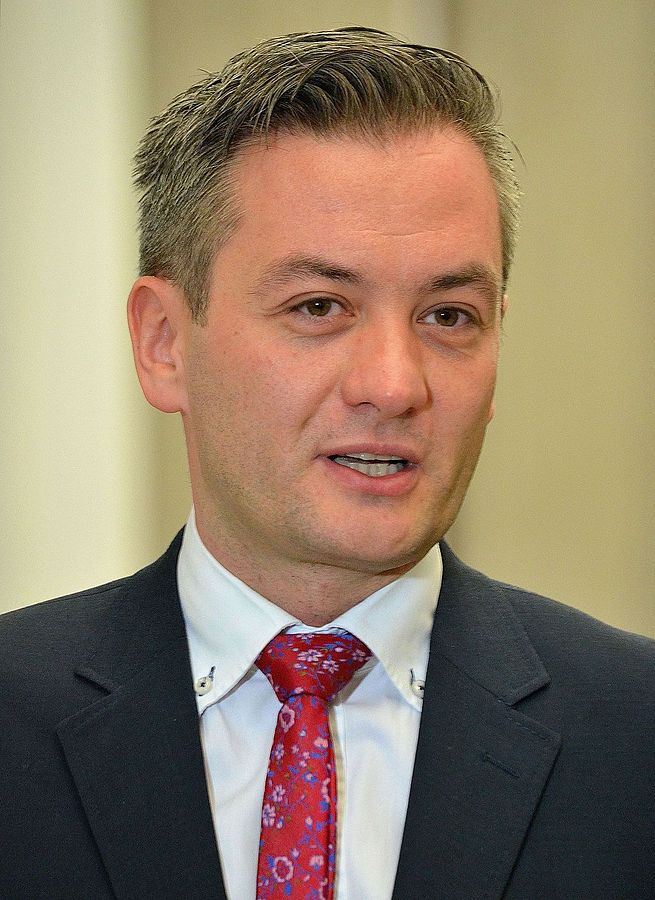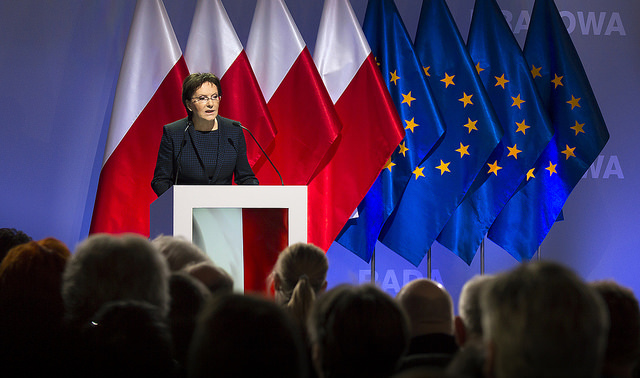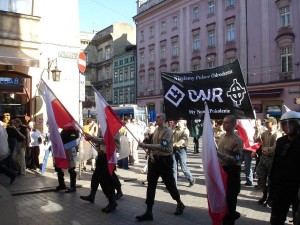 After presidential and parliamentary elections, Poland found itself in totally new situation. For the first time, there is no left in the parliament and the right wing Prawo i Sprawiedliwość has almost all power in it’s hands. With the weak opposition from crumbling Platforma Obywatelska, newbies from .Nowoczesna and few survivors of Peasant’ party they finally see a chance to introduce changes they dreamed about for several years. They attacked swiftly, and they grind forward using brute force of majority of votes and with disregard to the constitution, laws and simply political decency – the victorious takes it all.
After presidential and parliamentary elections, Poland found itself in totally new situation. For the first time, there is no left in the parliament and the right wing Prawo i Sprawiedliwość has almost all power in it’s hands. With the weak opposition from crumbling Platforma Obywatelska, newbies from .Nowoczesna and few survivors of Peasant’ party they finally see a chance to introduce changes they dreamed about for several years. They attacked swiftly, and they grind forward using brute force of majority of votes and with disregard to the constitution, laws and simply political decency – the victorious takes it all.
For older generation situation when in parliament Henryka Krzywonos, legendary leader of 1980 strikes, stands against former communist prosecutor Stanisław Piotrowicz who on behalf of Prawo i Sprawiedliwość leads the actions to hijack the Constitutional Tribunal is shocking, but many young people, who by voting Law and Justice and Paweł Kukiz, see nothing wrong with it’s actions: it serves Platforma and current establishment right, and Poland needs to be governed by the strong hand. In result, PiS popularity increased even more. How did it happened that Polish youth became so leaned to the right?
Right wing extremism was always present in Polish society. 1990’s observed a raise in neo-nazi subcultures and it’s filtration into the circles of football hooligans. But it was only in last decade when Kaczyński in a bid of gaining some more votes, pulled them out from the margin of the society and praised them as patriots and, de facto, gave them legitimization to mark their presence in the main stream politics. Their radical views appeal to young people, seeking simple and firm solutions.
People born in 1989, on the last year of the communist regime, are 26 years old today. Therefore there is already a new generation who don’t remember communism, and thus have completely different view than their parents. Older generation compares 2015 Poland to 1985 Poland and even those, who are not happy with the direction of changes, cannot deny that living in Poland is much easier now and see how much has been done. But the young generation has different point of reference. With about 2 000 000 Poles working in other EU countries, almost everyone knows someone who lives or used to work abroad. Therefore it’s much easier for the younger to compare their lives with their peers in the UK or in Germany. They have no point of reference, as they don’t remember more than a decade ago and knowledge of the situation in neighbouring countries such as Lithuania or Czech Republic is almost non-existent. Therefore all they see is a big gap in the level of lives between Poland and Western Europe and they need someone to blame for this difference. Right wing politicians provide them with ready made easy answers: migrants, establishment, businessmen or mystery “them”. Jarosław Kaczyński is especially known for the latter, as he has this manner of speaking when he leaves the gap to be filled by the listener (“There are those forces in Poland, that I would not name here…”)
The new generation of Poles was shaped by the times they were born and raised in. After 1989, Polish economy was run in the XIX capitalist style – communist Poland was a bankrupt state and so called “shock reforms” of the drastic Balcerowicz plan took their toll. This generation reached their adulthood in the circumstances, when a full-time jobs are far between and poorly paid, and often have to struggle for survival on zero-hours contract, cash-in-hand jobs and self-employment, deprived of their basic worker’s rights and without any chances to plan for the future unless they decide to emigrate. Their voice is not understood by the older generation, who benefited from the changes and managed to secure good jobs or became entrepreneurs, often by pure accident. On the contrary – the older ones jealously protect their position from and exploit the younger, as they are often afraid that new generation risen with smart phone in their hands might be better suited to live under new market economy.
So to whom the younger ones can turn to? The church is no longer the answer, despite the fact that religious education dominates Polish schools (average Polish pupil has more hours of catechesis than biology, geography, physics and chemistry put together) Surely, it leaves a strong imprint on the young minds, even despite exceptionally bad standards of teaching provided by poorly prepared priests, nuns and secular catechists that are beyond control of the Ministry of Education. But in the long run, catechesis in school rather pushes young people away from the church. Regular attendance fell to below 30% and it’s even lower amongst the young people. But those, who do stay in church, are much more radical.
The young Poles also lack historical knowledge. Thanks to the reforms to the Polish school system, they run history course three times – first in primary school, then in gymnasiums and then, again, in high schools. The problem is that history is always taught chronologically and due to lack of time (there is much less history lessons than catechesis) it has to be very brief. In many cases they lack time to “make it” into XX century, but then, after moving up to the next school, they abandon the course and drop back, grinding up from prehistoric times through antic Rome and Greece again… Their understanding of politics and civic society should be build, in theory, during lessons of “Knowledge about the society (Wiedza o społeczeństwie)”, but there is very little time devoted to this item, and even then part of it is cut away to teach about entrepreneurship.
As a result, young people have very little understanding of modern politics, of basic rules such as separation of powers or the electoral system. They not only don’t understand the Constitution, but are even unaware of it’s importance. They know nothing about negotiations and politics of the second republic, or the hard process of transition from communism to capitalist regime – all they know is Polish successes under brave Kings who, like Władysław Jagiełło, “smashed” Teutonic Knights at the fields near Grunwald in 1410 or “saved Europe from Islam” as Jan III Sobieski did in 1683 when he has beaten Kara Mustafa’s army near Vienna. If there were some negotiations in the history handbooks, Poland was never treated fairly – was it either Vienna convention, Yalta or partitions of Poland. Round table negotiation are often rejected as dishonourable deal with the enemy. Therefore young people often cannot think of the examples where peaceful negotiations and cabinet politics has led to anything good. Boosted by the lyrics of the Polish national anthem “Poland has not perished yet as long as we are alive / what foreign force took away from us, we will take back with sword” (“Jeszcze Polska nie zginęła, póki my żyjemy / co nam obca przemoc wzięła, szablą odbierzemy”) they seek strong leader who seems to be able to “dispose of enemies of Poland”. They itching to take up the fight, especially that they were raised with the histories of the older generation fighting communist regime and they would like to add their brick to the fight as well. Especially that compared to even 1980’s, nowadays being in opposition to the government is completely safe. The whole right wing media operate in this frame – their titles call themselves “independent press”, their publicists – “defiant journalists”. This is also fuelled by the right wing propaganda, that created a cult of steadfast “cursed soldiers” – partisan groups who refused to give arms after the end of II World War and continued to fight with the communist.
At the same time, many young lack basic understanding of economy. Those of them, who are running own businesses are faced with high taxation and complicated bureaucracy, the others, who work as salaried employees blame the state for their low income. They don’t understand that Poland still has a long way to go to be able to meet Western European level of salaries, and that greediness of many employers, who often are unable to understand that employees are their biggest asset, does not help to achieve that. But of course the simplest answer is provided by radical Janusz Korwin-Mikke – “taxes are theft, as thieves from tax office not only cost a fortune, but also steal a big chunk of collected money”. The answer? Hang all thieves, introduce “true” free market, lower taxes to minimum and remove any influence of the state over the economy.
The fact that young people, who struggle to make their ends meet while working silly hours for peanuts under contracts that do not protect their basic worker’s right vote for politicians who promise to further relax employment laws in Poland looks like turkeys voting for Christmas. But here we arrive to the next problem with Polish education:
While Poland education scores high in international research, it is mostly thanks to it’s focus on tests. Kids are not taught how to cooperate, how to analyse or how to draw conclusions and solve problems. They are taught how to score high in test. The science and mathematics are marginalized and in the popular perception there is nothing wrong if someone can’t understand basic maths. On the contrary, many of such young people are proud of the fact that they can’t master basic algebra: they call themselves “humanists” and look down at “those nerds”. Recently mathematics has became yet again mandatory subject on the matura exam, that end majority of high schools and grants access to the university education, and results are appalling, showing total inability to solve even simplest logical problems… Luckily for them (but sadly for our education standards) cheating on exams is still widely considered not a shameful fraud, but as a sign of resourcefulness and a cunning thing to do.
Anyway, economical liberalism is vastly popular amongst young generation. In connection with the views on Socialism that they picked from their parents, who associate it with the communist regimes in Eastern Bloc, the little wonder that the word “lewak” (~lefty, leftist) has grown to be the major insult to their adversaries. And one has to remember the scale of those right wing deviation: for average Polish right wing 20-something, even Adam Smith would be rejected as “lewak”.
And even if one has different views and would like to be a bit leftist, it is hard, as it requires to go against the flow. The Polish internet for youth is dominated by right wing and pro-PiS propaganda. Even the websites seemingly not related to politics, such as kwejk.pl, a message board with memes and silly pictures, were in recent years gradually filled with anti-PO memes. Other time-killing websites, such as demotywatory.pl or joemonster.pl were also full of memes mocking prime minister Kopacz and president Komorowski. Yes, one might say that internet was also full of anti PiS memes, but the difference was that anti-PiS memes are usually catching up, and many of them made it even to popular language, while the power of anti-PO memes was only in their vast number.
Yet the young men, who get most of their information off the internet might be under impression that this right wing narrative is dominating. The biggest Polish news aggregation site wykop.pl, a clone of digg and reddit, is dominated by right wing users. Links from websites such as left wing think tank “Krytyka Polityczna” are unheard of there and even links from mainstream media such as gazeta.pl, an internet portal run by the publishers of biggest Polish daily paper Wyborcza, or TVN24, biggest Polish news TV station, are instantly down-voted by default. At the same time “acceptable” (as in opposition to neo-nazi movements) right wing extremism such as pro-weapon movement, economic liberal Janusz Korwin-Mikke or ultra-catholic Grzegorz Braun is over-represented. Discussion is almost impossible, as person with views other than majority will be offended mocked and abused. But one has to give justice to wykop community, as they have seen through the trick pulled by media outlet related to PiS.
The PiS media emporium, funded by the money syphoned from SKOK saving societies (as proved over the years by investigative journalist Bianka Mikołajewska) contains several titles. Some are run directly by SKOK (the most notable example is a portal stefczyk.info) or supported by commercials ordered by SKOK and related companies. Along with the media consortium run by charismatic priest Tadeusz Rydzyk, they create a sustainable ecosystem, by mutually quoting themselves, interviewing publicists from other titles and polemizing with each other. The reader of the Polish internet might be under impression that those media have really widespread reach, but the fact is that TV Republika, for example, is oscillating around 0.1% of market share, and widely available TV Trwam run by father Rydzyk draws attention of less than 1% of viewers. If the young person sees through this and decided to gain some knowledge from the independent sources, he or she most likely tries to use social media, lands at wykop or similar places and finds there amateur recordings of lectures of such “thinkers” as Janusz Korwin Mikke, Paweł Kukiz or Grzegorz Braun.
Shortcomings of the Polish education system, such as focusing on test and negative selection of teachers (until recently, Polish teachers were at the bottom of the salary scale) resulted in whole generation that is unable to think critically and is satisfied with brief summaries and flashy slogans. The popularity of Janusz Korwin-Mikke can be the best example of it, as his ideas might sound sensible at first glance and not many of his followers bother to analyse them in depth.
Add all of the above together, sprinkle it with the bit of confirmation bias and top it with complete lack of role models and remember, that young people are more likely to seek radical solutions and prone to fall under influence of strong leaders and here you go: a new generation of Polish right wing voters, happy with the changes introduced by PiS (because it promises to kick establishment’s arses, and who really cares about some boring old farts from Constitutional Tribunal). They are also not willing to discuss anything – once they made their mind, they already know that they are right, and they cultivate hate to those who think differently, as it can be seen in internet discussion, when all they do is throwing abuse. The other voices are covered with indecent noise, their adversaries are simply shouted over and retreat even deeper to their “leftist” enclaves.
This is why PiS yearns to reform public media and education system, as by strengthening those tendencies, it can ensure that next generations of Poles will also grow up with strong leaning to the right.
Photo: „Onr kraków 2007 04”. Author unknown.
Licence CC BY-SA 3.0 via Wikimedia Commons
Article was published on the Czech language portal Britské listy

